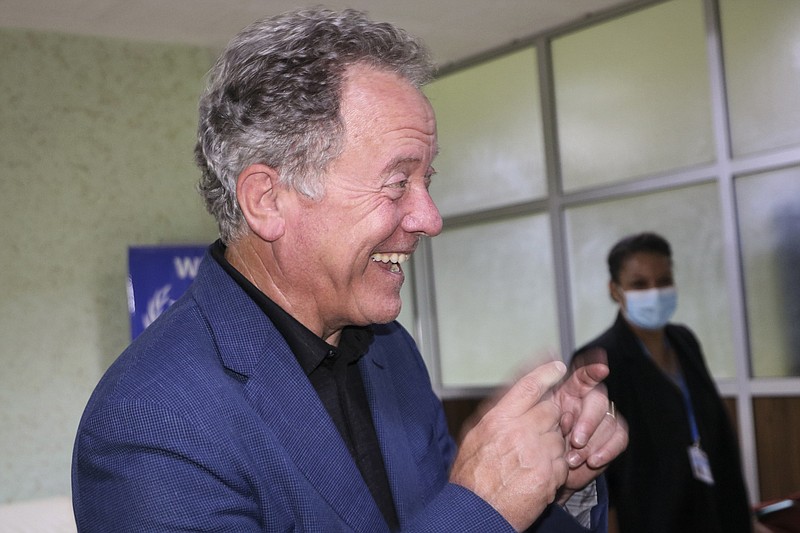UNITED NATIONS -- Even before covid-19 became an issue, World Food Program chief David Beasley was warning global leaders that the world would face the worst humanitarian crisis since World War II in 2020.
He said that was because of wars in Syria, Yemen and elsewhere, locust swarms in Africa, frequent natural disasters, and economic crises including in Lebanon, Congo, Sudan and Ethiopia. Then came covid-19 which quickly became a pandemic that has swept the world, escalating the need for food -- and U.N. Secretary-General Antonio Guterres says it is still not under control.
Beasley, who got covid-19 in April, has spent the months since he recovered reaching out to world leaders and visiting stricken countries with a new warning that he delivered to the U.N. Security Council last month: Millions of people are closer to starvation because of the deadly combination of conflict, climate change and the coronavirus pandemic.
He said the World Food Program and its partners were going all out to reach as many as 138 million people this year -- "the biggest scale-up in our history."
Beasley urged donors, including governments and institutions, to help, and he made a special appeal to the more than 2,000 billionaires in the world, with a combined net worth of $8 trillion, to open their bank accounts.
The awarding of the Nobel Peace Prize on Friday to the U.N. food agency is a tribute not only to its work in the even greater humanitarian crisis than Beasley envisioned in this covid-ravaged year, but as the Nobel committee made clear it is a plea for unity and multilateral cooperation to tackle global challenges.
Beasley called the award "a humbling, moving recognition of the work of WFP staff who lay their lives on the line every day to bring food and assistance for close to 100 million hungry children, women and men across the world -- people whose lives are often brutally torn apart by instability, insecurity and conflict."
He also paid tribute to the agency's government, organizations and private sector partners who help the hungry and vulnerable.
"Every one of the 690 million hungry people in the world today has the right to live peacefully and without hunger," Beasley said in a statement on the WFP website.
"Today, the Norwegian Nobel Committee has turned the global spotlight on them and on the devastating consequences of conflict. Climate shocks and economic pressures have further compounded their plight," he said. "And now, a global pandemic with its brutal impact on economies and communities, is pushing millions more to the brink of starvation."
While the food crisis is mainly the result of conflict, Beasley said in April that he raised the prospect of a hunger pandemic because of the economic impact of covid-19.
He told the Security Council last month that famine has been averted because of generous donations, but "this fight is far, far, far from over -- the 270 million people marching toward the brink of starvation need our help today more than ever."
And he said 30 million people who rely solely on the World Food Program for food to survive will die without it, and the program needs $4.9 billion to feed them for a year.
"We're doing just about all we can do to stop the dam from bursting," Beasley said. "But, without the resources we need, a wave of hunger and famine still threatens to sweep across the globe. And if it does, it will overwhelm nations and communities already weakened by years of conflict and instability."
The World Food Program's logistics operation is key to delivering food to tens of millions in need, and lockdowns and closed borders because of the pandemic have created immense difficulties for the agency.




